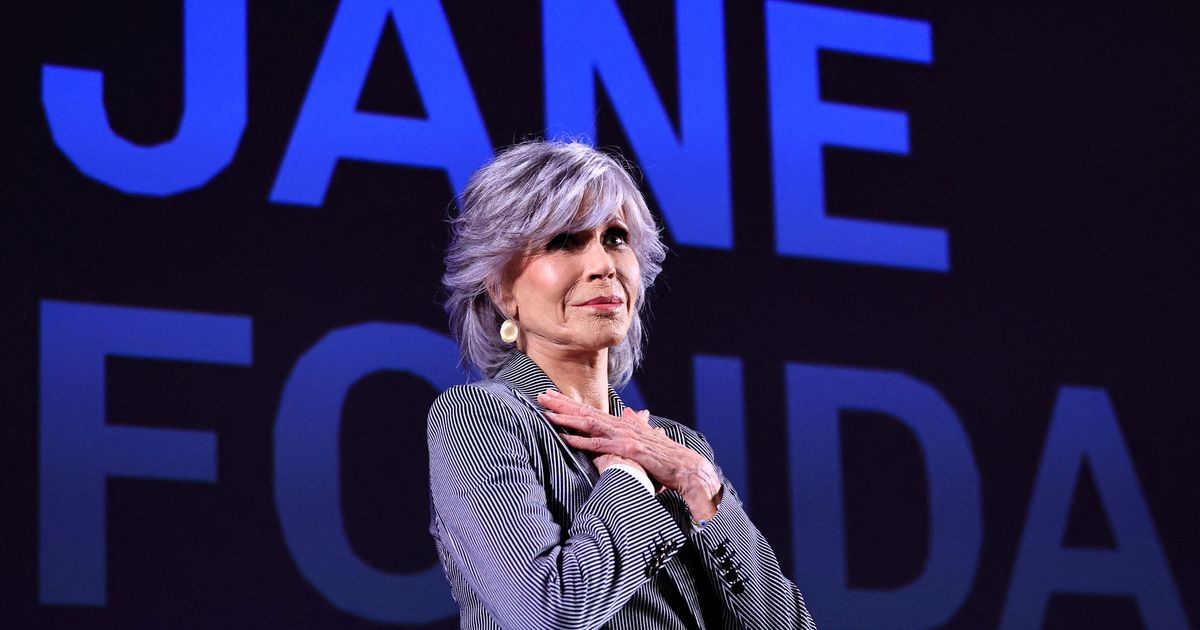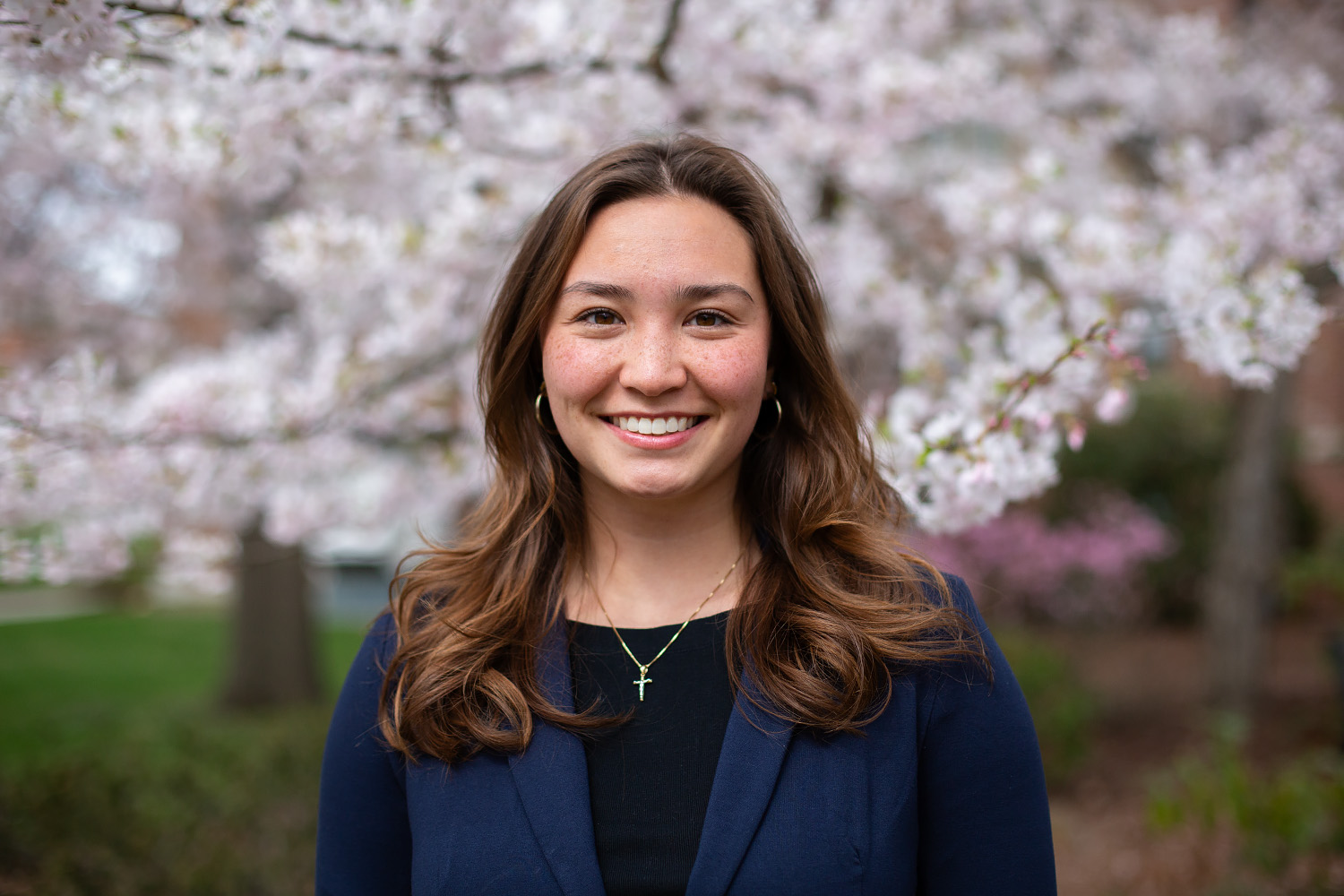
90 Minutes of Jane Fonda Confessing the Absolute Truth About Hollywood
On the final, unseasonably hot Friday afternoon of the 2023 Cannes Film Festival, everyone at the Palais was sweating except for Jane Fonda, who took the stage in a chic gray suit for a 90-minute conversation about her decades-long career as an actress and activist. Fonda was disarmingly open, answering every question from the moderator and energetic audience: She spoke alternately about being in love with and despising her various co-stars over the years. She talked about never wanting to do another movie in the vein of Book Club: The Next Chapter or 80 for Brady. She remembered getting drunk to film her opening striptease in Barbarella. And she insulted Jean-Luc Godard and told an incredible story about competing for an Oscar with Katharine Hepburn.
.
On Lee Marvin: “He was a fabulous drunk and a wonderful human being.”
Right off the bat, Fonda explained why she was able to understand the French moderator without a translator, as she dipped in and out of French throughout the conversation: “One of my husbands — I’ve had three — was French,” she said, referring to Roger Vadim Plemiannikov, who directed her in Barbarella. She launched into an anecdote about becoming aware of labor rights on the set of 1965’s Cat Ballou (“I thought it was gonna be terrible, but when I saw it, I was like, ‘Oh my gosh!’”), where she and Lee Marvin were hired “cheap” under contract and forced to work 14-hour days. “I loved it, because I ride horses and I’m a tomboy and I could shoot people,” she said, “and Lee Marvin was fabulous. He was very funny, and he was always drunk. We stayed at the same motel, and they had to carry him up the stairs.”
But Marvin “taught me something very important,” she added. “At one point, my tooth got knocked out, and they didn’t stop shooting — they just shot me from the back. He took me aside and said, ‘Fonda, we’re the stars of this movie. If we allow them to work us so many hours, we’re not the ones that get hurt — it’s the crew. We have to stand up for the workers. That was a huge lesson from Lee Marvin, who wasn’t a revolutionary. He was a fabulous drunk and a wonderful human being.”
.
On Robert Redford: “He just has an issue with women.”
Next up was a question about the films she’d made with Robert Redford: 1966’s The Chase, the 1967 screen adaption of Barefoot in the Park, 1979’s The Electric Horseman, and 2017’s Our Souls at Night. “Well, I was in love with him,” Fonda said. “I made four films with him, and for three, I was in love with him. Which meant I had a really good time.” The only problem, she explained, was that “he did not like to kiss. And he was always in a bad mood, and I always thought it was my fault.” When they made their last film together six years ago (“What was I, about 80 years old, or something like that?”), she said, “I knew I was finally grown up, because when he’d come on to the set three hours late in a bad mood, I knew it wasn’t my fault. We always had a good time. He’s a very good person … He just has an issue with women.” (She did not elaborate.)
.
On Barbarella: “I had to get drunk.”
Fonda recalled making 1964’s Joy House with French actor Alain Delon, about whose good looks she exclaimed, “Oh, my lord! Not so much now. He’s had a rough life. But then, he was the most beautiful human being.” Unlike Redford, “he did like to kiss. We had nice love scenes.” She was less thrilled, at least initially, about the intimate scenes in Barbarella. “I didn’t like it at all when I was making it,” she said of the campy 1968 sci-fi flick. “At the beginning of the movie, I did a striptease in space. I was very shy, believe it or not, so I had to get drunk, and I drank a lot of vodka. The next day when we saw the dailies, a bat kept flying between the camera and me. And we had to do the whole thing over again the next day — only I had a hangover.” When the movie was released, Fonda was shocked to see herself nude onscreen. “Vadim promised me it would be covered up with titles, and it wasn’t.” She took a pause, then grinned. “We aren’t married anymore!” But over the years, she has come to love the movie: “Now when I see it, I think it’s fun.”
.
On Klute: “Hire Faye Dunaway. She’ll be good. They wanna sleep with her.”
Fonda credited Klute, her 1971 neo-noir about a New York City sex worker assisting a detective in a missing-persons case, with turning her into a feminist. She recalled installing herself with a group of “prostitutes and their Madame Claude” for a week in France to prepare for the role, and “not one man winked at me. Nobody asked me to sleep with them or anything,” she laughed. “I said to Alan [J. Pakula, the director], ‘Let me out of my contract. Hire Faye Dunaway. She’ll be good. They wanna sleep with her.’ He just laughed and sent me away.” To get further into character, Fonda went to a morgue, where she was shown photos of “hundreds of women who’d been beaten to death by men.” She remembered these women while filming her final scene and “began to cry, not out of fear but of sadness and horror. One half of me was there [in the scene], and the other half of me was saying, ‘Holy shit. I’m becoming a feminist.’ It was so powerful.” (She says her feminist instincts were later codified by a trip to see Eve Ensler’s The Vagina Monologues.)
.
On her looks: “Do you know how many hours I slept last night? 13.”
Fonda breezily answered questions about her looks — including one from a woman in the audience who stood up and identified herself as an actress who did a movie with Vadim in 1982 and asked Fonda how she “stayed so beautiful.” “Years and years ago, I had plastic surgery,” said Fonda. “I’m not proud of that. Besides that, I have a very good makeup person, and I sleep. Do you know how many hours I slept last night? 13. I eat healthy. I work out. I walk a lot. And I’m curious. And the most important part of that is curiosity.”
Fonda explained why she eventually cut off her hair. “Nobody has ever asked me that. I always had all of this blonde hair, especially when I was with Vadim,” she said. “It made me feel safe and feminine. When I was starting to become political, I decided I needed to get rid of it all. I went to Vadim’s barber for men, and he cut it all off. I felt so liberated.” Shortly thereafter, she porced Vadim after meeting American soldiers who’d deserted their posts in Vietnam and told Fonda “what was really happening” in the war. After meeting them, she said, “I was a different person. I knew I had to leave Vadim and go back to America to become an organizer.” She almost left Hollywood entirely — until one organizer told her, “‘Fonda, we have a lot of organizers. What we don’t have is movie stars. Make movies that matter.’ So I did!”
.
On 9 to 5: “Oh my God, I better make a movie about this.”
To that point, Fonda recalled replacing Richard Dreyfuss in The China Syndrome — “He dropped out because he decided he liked nuclear energy or something” — and putting together 9 to 5. “I became friends with a woman who organized office workers, and she’d tell me stories about what secretaries had to put up with: wage theft, sexual harassment. I said, ‘Oh my God, I better make a movie about this.’” Originally, the script was a “really dark” comedy. But shortly thereafter, she saw Lily Tomlin in a play, and “I fell in love. I said to myself, ‘I’m not going to ever do a movie about secretaries unless Lily Tomlin is in the movie.’” On the drive home, she turned on the radio, and there was Dolly Parton singing “Two Doors Down.” “I suddenly had this image of Dolly typing,” recalled Fonda. “She can’t see her fingers. She’s so funny. She once said to my son, who was very little at the time, ‘Do you know why my feet are so small? Things don’t grow big in the shade.’”
.
On Book Club: “I don’t want to do that anymore.”
As for her more recent output, Fonda seemed less enthusiastic. “I’m still amazed that people offer me movies. I’m almost 86 years old,” she said. “I normally would not have wanted to make two movies in one year that have four old women in each of them: 80 for Brady, though I finally got to work with Sally, who’s my heroine. And in Italy, we made Book Club again. But I don’t want to do that anymore. I don’t know what’s coming next, except that I don’t want to do any more movies that don’t challenge me as an actor. I want to be challenged. And I want to play something really complicated.”
Any ideas on what might be next? “No,” she said. “I’m too busy trying to fight the climate crisis.” Among many other things she’s previously spoken about at length via her Jane Fonda Climate PAC, she suggested we “arrest and jail the men — they’re all men” responsible for the current crisis. Later, she added that “there would be no climate crisis if there was no racism or patriarchy. So when I say that I’m fighting the climate crisis, I also feel that I’m fighting patriarchy and racism. It’s important, because we have to get out of the silos — feminists over here, environmentalists over here. That’s what I learned when I started being an activist around the Vietnam War. The more you go down any issue, whatever it is, you realize that it’s all connected. And if we solve the climate crisis and we haven’t solved those other things, we’re gonna be in trouble.”
.
On Hollywood: “Don’t let the fuckers get you!”
Fonda waxed poetic about the power of female friendship, calling Tomlin “my favorite man I’ve ever worked with — she is my sister, and I love her more than anything.” Otherwise, “I don’t feel that I’m really a part of Hollywood,” she admitted. “I don’t go to the parties. I wish I did. I don’t always get invited.” In part, that’s because she “always cared about other things besides my career,” she said. “If I really cared about my career, I would never have done what I did, which was leave America and move to France and live in an attic in Le Marais with Vadim … It was a terrible move to make from a career point of view.” But “then I had activism,” she added, which finally gave her life meaning — not Hollywood. “It took me until I was 70 to become a person,” she said.
While answering a woman’s question about how to break into the industry, Fonda was characteristically blunt. “Don’t let the fuckers get you!” she said. “You’ve gotta be strong and stand up to them, but do it in a diplomatic way. You don’t want to make enemies. It’s all about relationships. That’s the big mistake I made. I never built relationships. Michael Douglas [with whom she starred in The China Syndrome] is great at building relationships. I don’t think he really likes me, but he’s very diplomatic.”
.
On the Jean-Luc Godard postscript: “It was a big pile of bullshit.”
Fonda continued to be delightfully undiplomatic when answering a question about her relationship with Jean-Luc Godard, with whom she made 1972’s Tout Va Bien and who then made a postscript film about her called Letter to Jane. “I thought it was a big pile of bullshit,” she proclaimed of the latter. “It was narcissistic. He’s a good example, Godard: We always ask ourselves, ‘How much does who someone is in their private life affect their art?’ He was a great filmmaker. I take my hat off. But as a man? I’m sorry, no.”
.
On Katharine Hepburn: “She didn’t like me.”
Fonda concluded the chat with a lovely anecdote about her father, Henry Fonda, and Katharine Hepburn, with whom she made On Golden Pond in 1981. “My dad was very ill, he had heart disease, and I didn’t want him to die without us having worked together,” she said. “So I bought the play and turned it into a movie with him. We hadn’t even begun to think about who should play Ethel, and one day in my office, the phone rings.” Here, Fonda launched into a raspy impression of Hepburn: “‘Hello? I hear you’re making a movie of On Golden Pond …’ It was Katharine Hepburn. She called us! ‘You can’t make it in May, the trees will turn red … ’ She was telling us how to make the movie,” Fonda laughed. “Of course, we hired her. It was one of the most glorious experiences of my life. I made the movie for my father, but the person I learned from in the movie was Katharine Hepburn.”
The reason Hepburn was “so interesting,” said Fonda, was that “she wanted me to keep talking about her after she was dead, and I talk about her all the time.” At the end of the affectionate anecdote, Fonda added a surprising aside: “She didn’t like me,” she said. “All three of us were nominated for Oscars, and I didn’t win, and they did. And I called Hepburn up to congratulate her and she said, ‘You’ll never catch me now!’”











































































